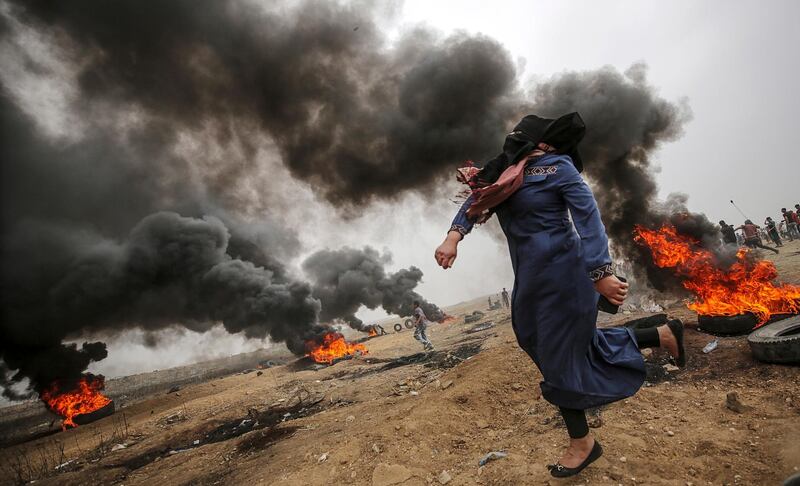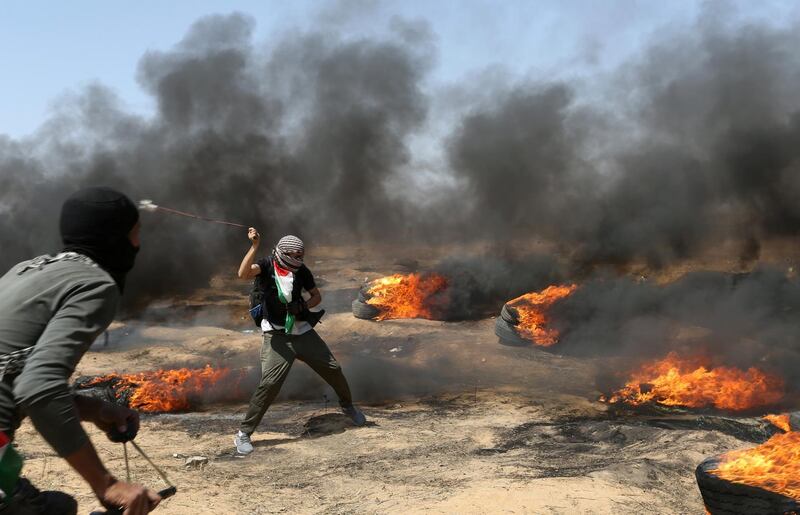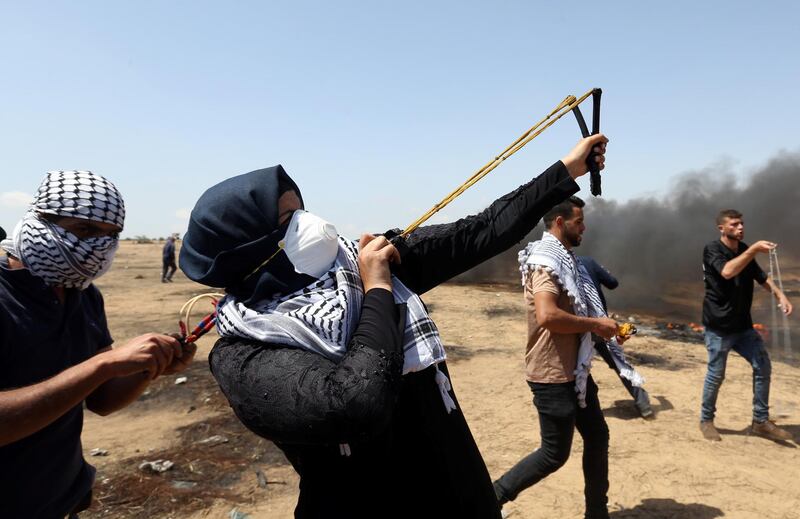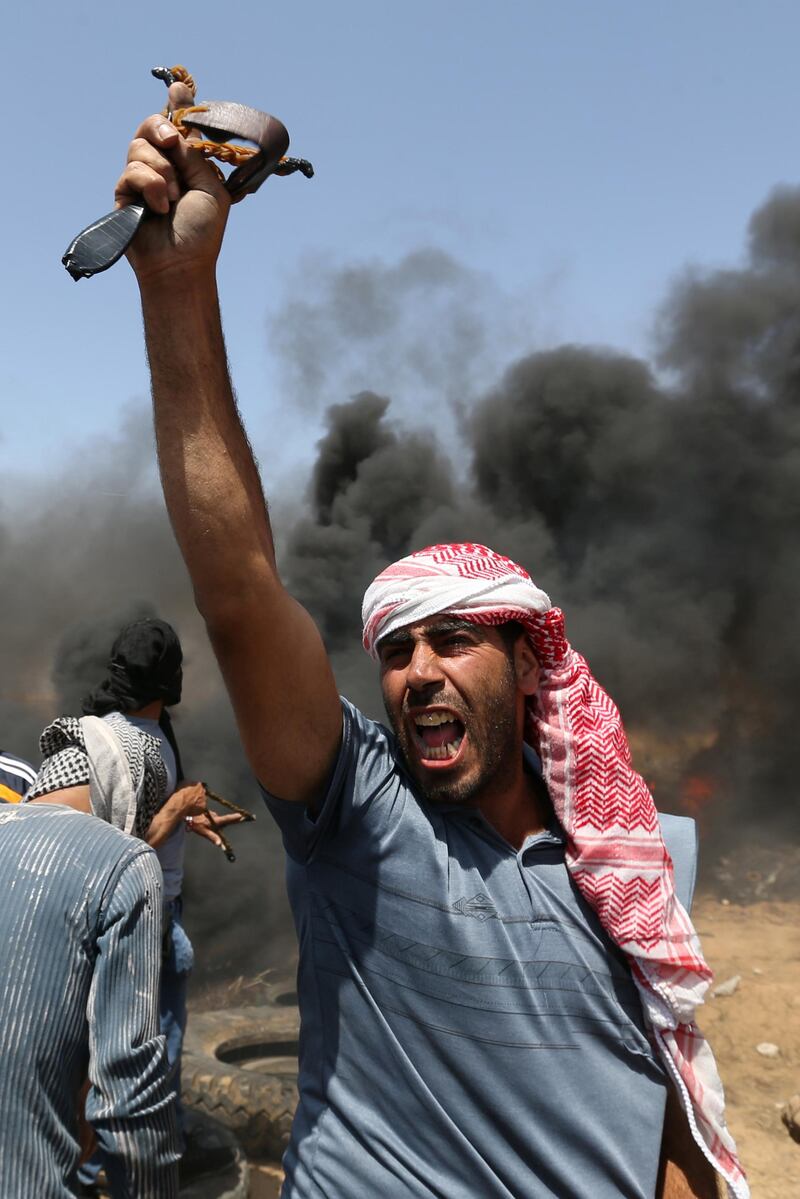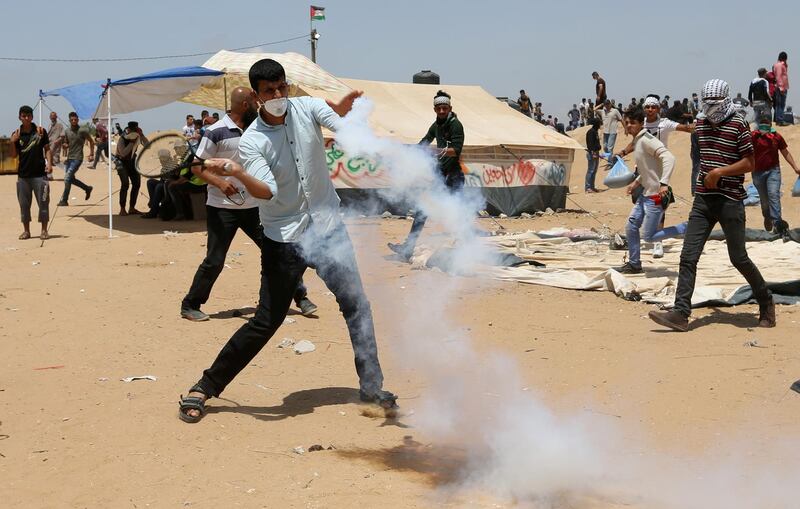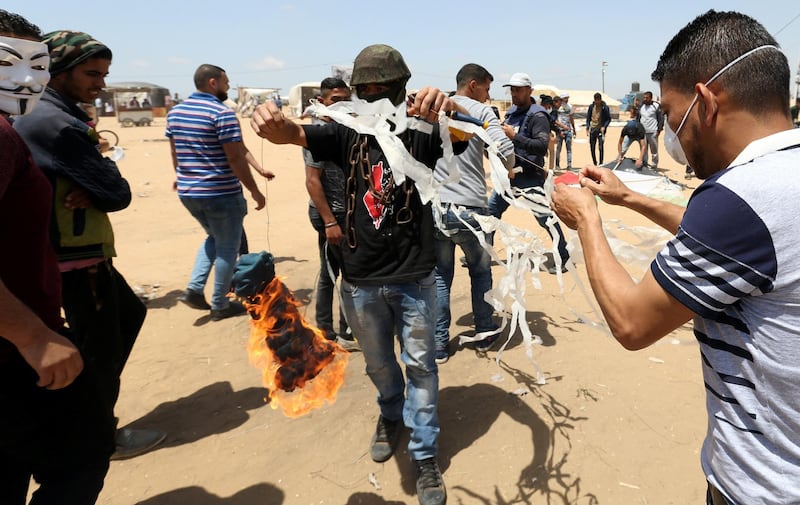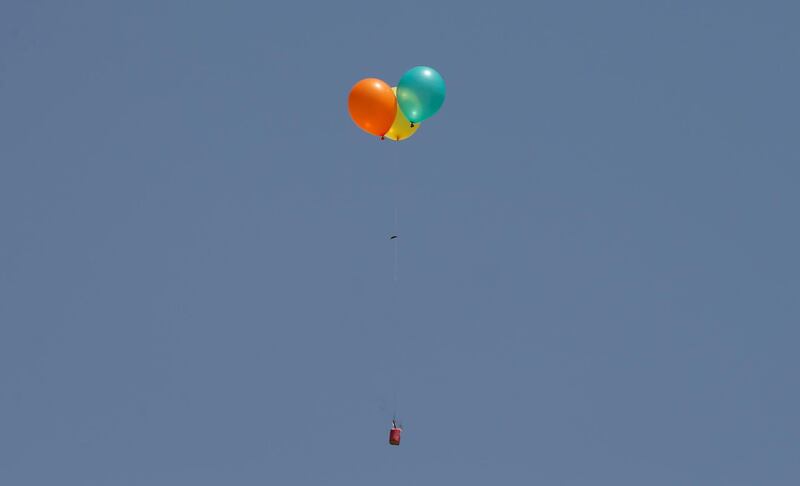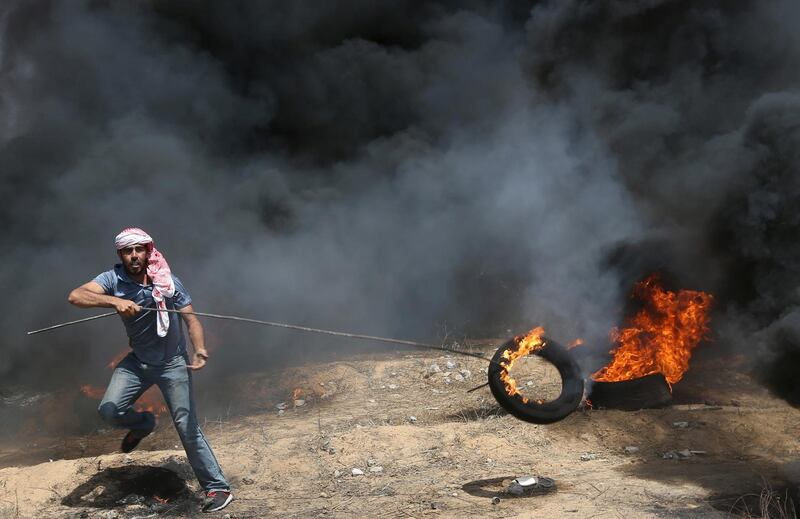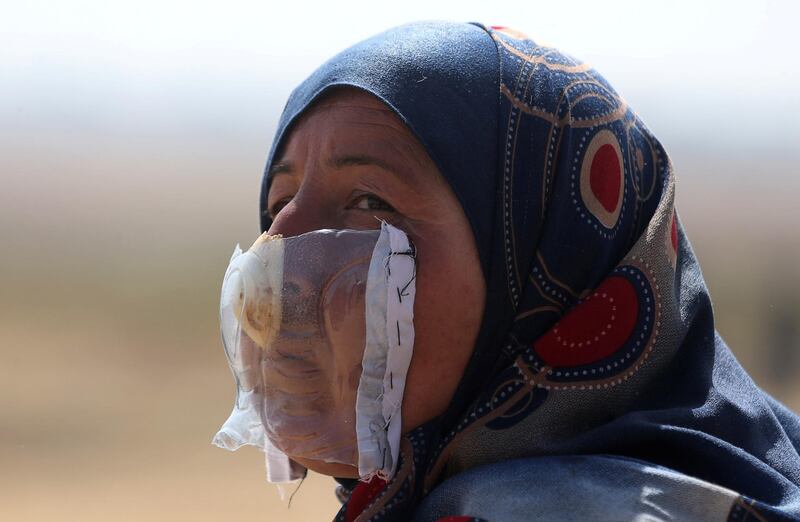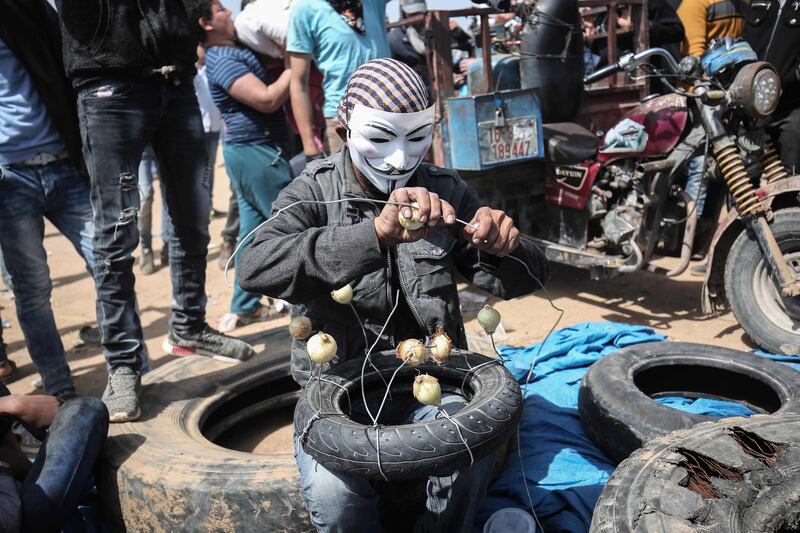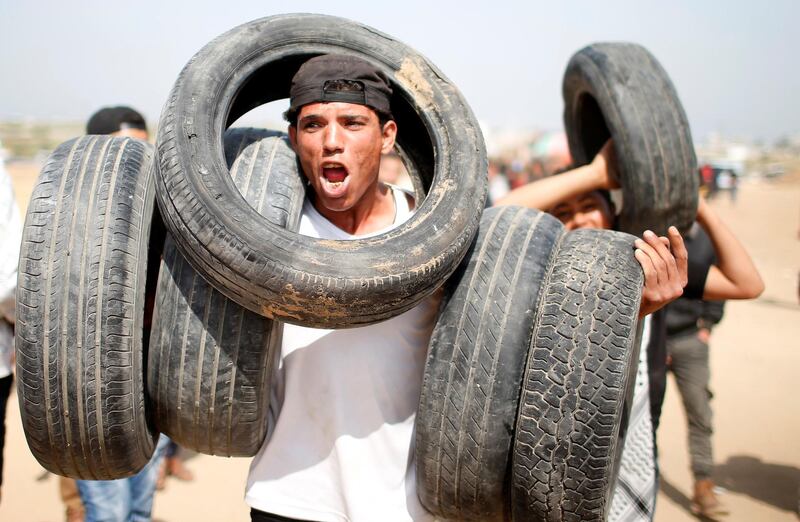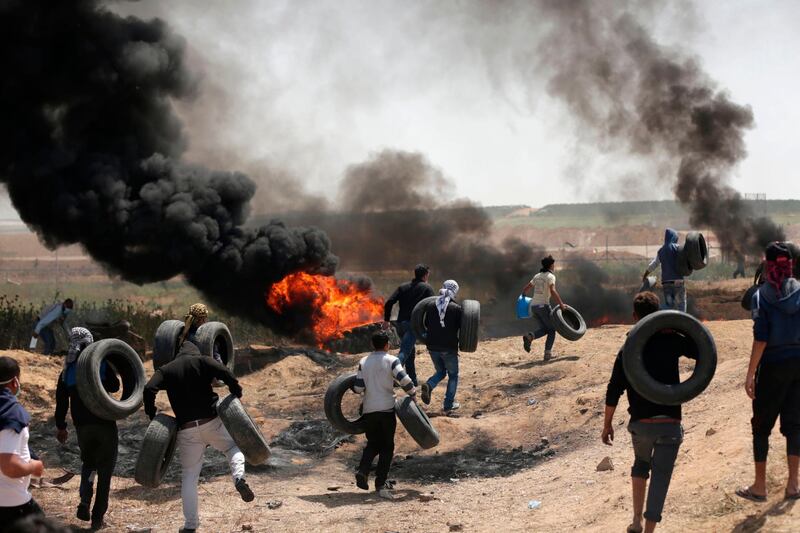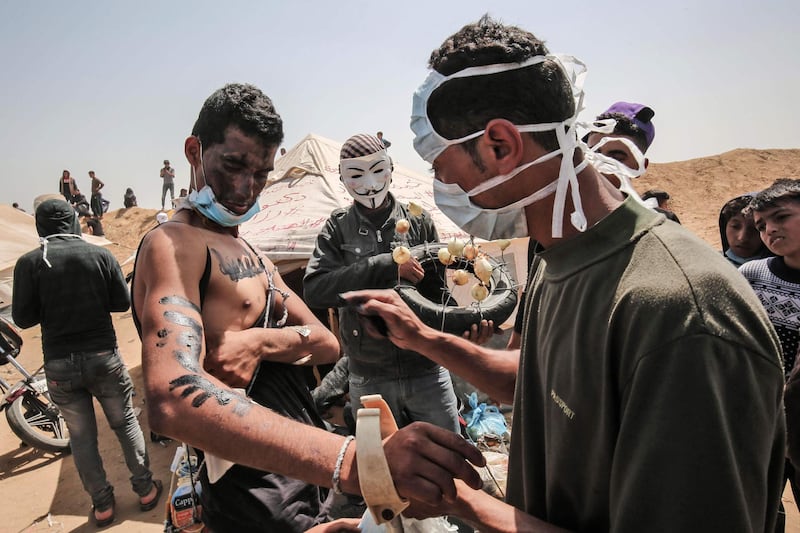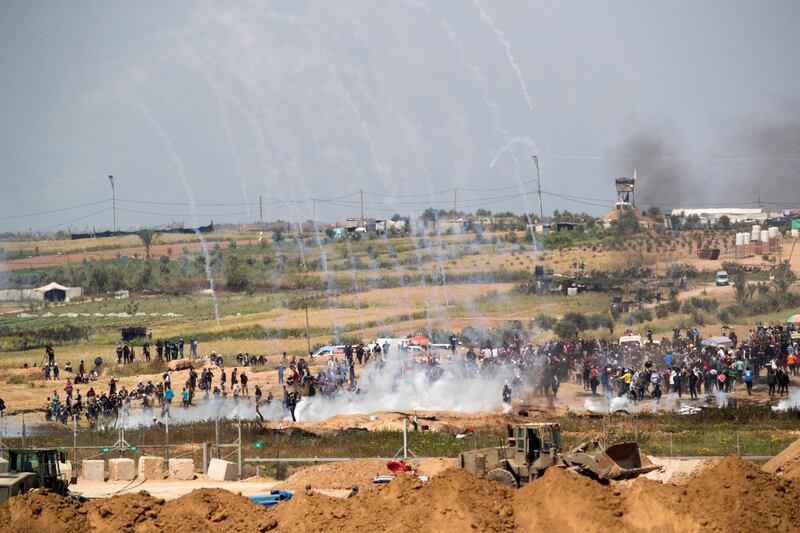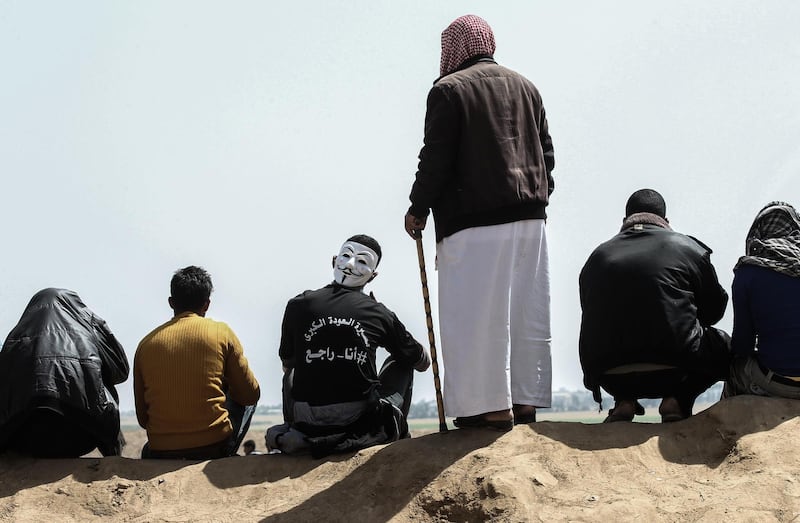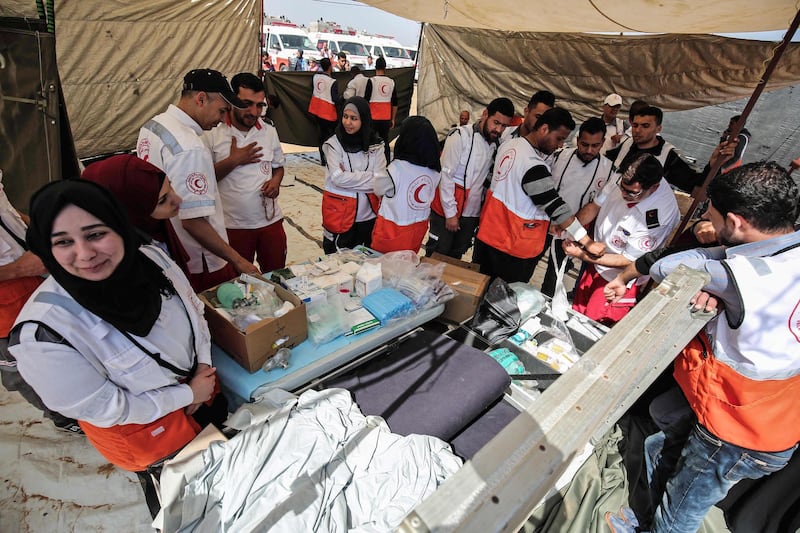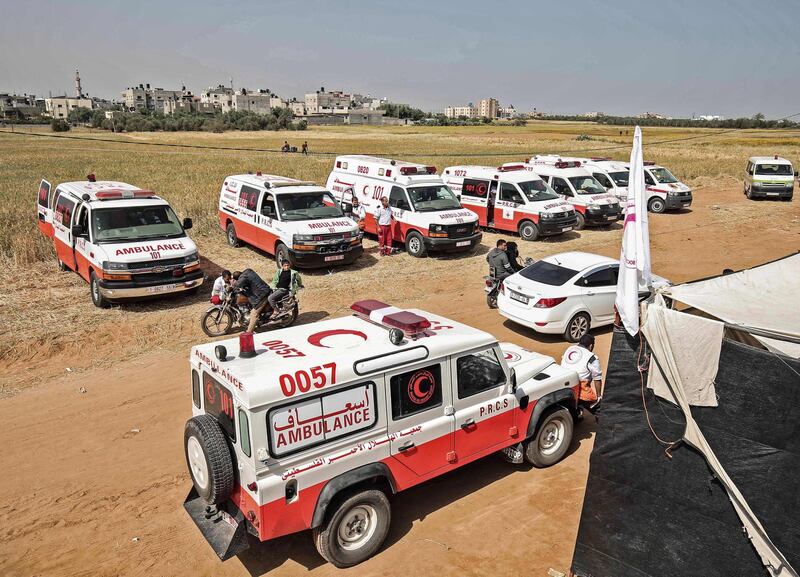In Bir Zeit, the West Bank village set on a pine-laden hill just north of Ramallah, they came on foot by the thousands. The first anguished arrivals from the central Palestine towns of Lydda and Ramle after Israeli troops expelled them from their homes in 1948.
The Nakba, the Palestinian catastrophe of displacement that accompanied Israel’s creation, was under way. Around 700,000 Palestinians, some of whom were evicted and some of whom fled, were eventually displaced. In Lydda and Ramle, about 50,000 were expelled by Israeli troops in what a young commander named Yitzhak Rabin would later concede in his memoirs was a "harsh and cruel" operation.
Recalling the devastating scene, Samia Khoury, then a 13-year-old student in Bir Zeit, told The National in an interview at her East Jerusalem home: "We saw droves of people walking. One was delirious. They didn't know how they could cope with what happened to them. They tried to bring money and jewellery and all of this was robbed. They were prevented from taking anything."Mr Rabin, who later as prime minister was assassinated by Israeli ultra-nationalists in 1995 when a peace deal appeared within reach, said his orders came from above.
Israeli leader David Ben-Gurion had not spoken but just made a wave of his hand "which said, Drive them Out!", Mr Rabin recalled.
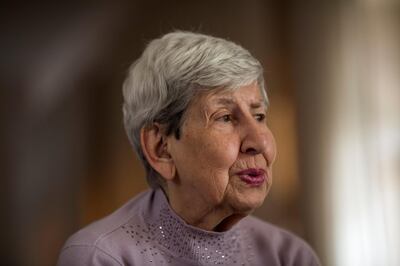
_____________
Gaza protester wounded in final week of border demonstrations
UN slams Israel's deadly force in Gaza
______________
Bir Zeit opened its churches and mosque to shelter the refugees. Ms Khoury remembers their plight vividly. "The children were crying all the time," she said. "The misery was overwhelming."
Palestinians will commemorate the Nakba's 70th anniversary on Tuesday against the backdrop of enhanced Israeli settlement building, land appropriation, and what they believe is a continued erasure from their homes, if not physically then symbolically. Adding to a sense of alienation for Palestinians, the United States will relocate its Israeli embassy to Jerusalem the day before the Nakba anniversary, a date shared with Israel’s declared day of independence.
In response, mass protests are expected across the West Bank and Palestinians in the Gaza Strip will mark the anniversary with the largest in a succession of rallies that began in late March, known as the Great March of Return, which calls for the homecoming of refugees and their descendants displaced in the Nakba.
That day revives memories of upheaval, loss and the theft of not only personal belongings, but their idea of an ancestral homeland. Meanwhile, Jewish Israelis look back on the same period as a battle for survival in which their forces prevailed against Arab armies that sought to intervene on behalf of the Palestinians.
The scene in Bir Zeit almost 70 years ago was just one in the wider drama of the Nakba, which played itself out across historic Palestine and the newly emerging Israel. For their descendants, the misery remains palpable.
Near Bir Zeit is Jalazone, the refugee camp that the United Nations Relief and Works Agency (UNRWA) initially founded with tents in 1949, where some of those from Lydda, Ramle and surrounding areas would find sanctuary.
Jalazone was supposed to be a temporary encampment. But with Israel militarily superior, and unwilling to take responsibility for the Nakba, hopes of a return to lost towns and villages become more remote with each passing year. Only bleakness awaits the younger generation in Jalazone and other camps in the West Bank and Gaza.
"There is no way to have a decent life in the camp," said Zeid Nabali, 23, among the estimated 45 percent of youths in the camp who are unemployed. "Actually what we have is not life and not death."
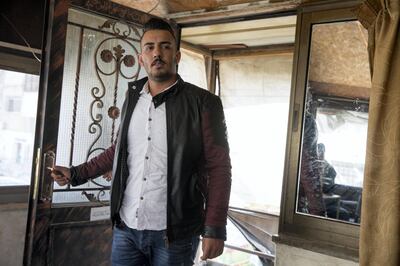
Services are few and far between, the Israeli military raids camps to make arrests and dreams of leaving are unrealistic for many.
_____________
Read more
Road signs pointing to US embassy go up in Jerusalem
Israeli Supreme Court to rule on demolition of West Bank village
Israeli soldier freed after 9 month manslaughter term
_____________
"The most important thing is work. Even when I do have a day of work, I only earn 70 shekels a day. It's not enough," Mr Nabali said. "You don't have water constantly or electricity constantly. If it rains the water enters your home and it fills the holes in the roads. If I want to leave to go somewhere, I am scared of the army."
In 1949, 2,000 refugees lived at the camp. Now, around 10,000 people live on the same piece of land.
"There is a population explosion. There is no area for building, no place for children to play and the infrastructure is destroyed," says Hussein Aliyan, 66, deputy director of the People's Committee for Services-Jalazone.
Even more worrisome is that UNRWA is cutting back its role after the Trump administration halted American funding to what is a lifeline to Palestinian refugees. A programme that provided temporary employment that supported 70 families in the camp is to be halted, Mr Aliyan was recently informed. And worse than that, there are doubts that the agency will have enough money to run its elementary school in the camp and others in the West Bank and Gaza Strip next autumn.
Jamal Khalili, a resident of the area and a retired member of the Palestinian security forces, whose parents were expelled from Lydda, echoed the sense of acute economic distress in the camp. He is hard pressed to support his two sons on a pension of 1500 shekels a month and occasional construction work.
In his small apartment in the Adaweh neighbourhood of Jalazone, where sewage streams outside some houses, a picture of Jerusalem's Dome of the Rock presides over the reception area, his front door missing a window pane and a blanket stuffed in the hole where the glass once was.
"Of course, I would leave the camp if I could but I don't have the money for that. The environment in the camp is very bad. It is not a great place for humans to live in," he said.
"You can't provide a good environment to raise children. I worry my kid will join the others and throw stones at the soldiers."
Asked if he believes there will ever be a return to Lydda, Mr Khalili was pessimistic, accusing the wider world of responsibility for the Palestinian predicament. "In the foreseeable time, no. If the world changes, then it can happen, but we don't see any sign of that now. The changes in the Arab world are for the worse."
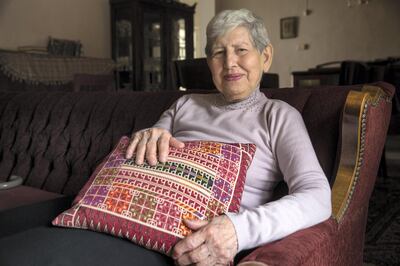
In Ms Khoury's view, the Nakba has never stopped.
"It's clear this is an ongoing Nakba. Israel's establishment displaced Palestinians and now they are taking land and evicting people, putting settlements everywhere. They have all the power to do anything they want."
That view is a near consensus in the camp. "The feeling has not changed. It is nostalgia for our homeland," said history teacher Yusuf Khalidi, who says he hailed from the destroyed village of Nabe, near Ramle.
In Jalazone, against a collection of drab grey concrete and brown stucco buildings adorned with "marytr" posters of former camp residents, youths said they would march towards an Israeli army position to "confront the army" on Nakba Day.
They say that their battle against that tragedy, like that of their ancestors, will not end.
"We want to send a message that if my grandfather dies, my father will replace him, if my father dies, I will replace him,” one, who declined to be named, said. "The cause of the right of return goes from one generation to another."
